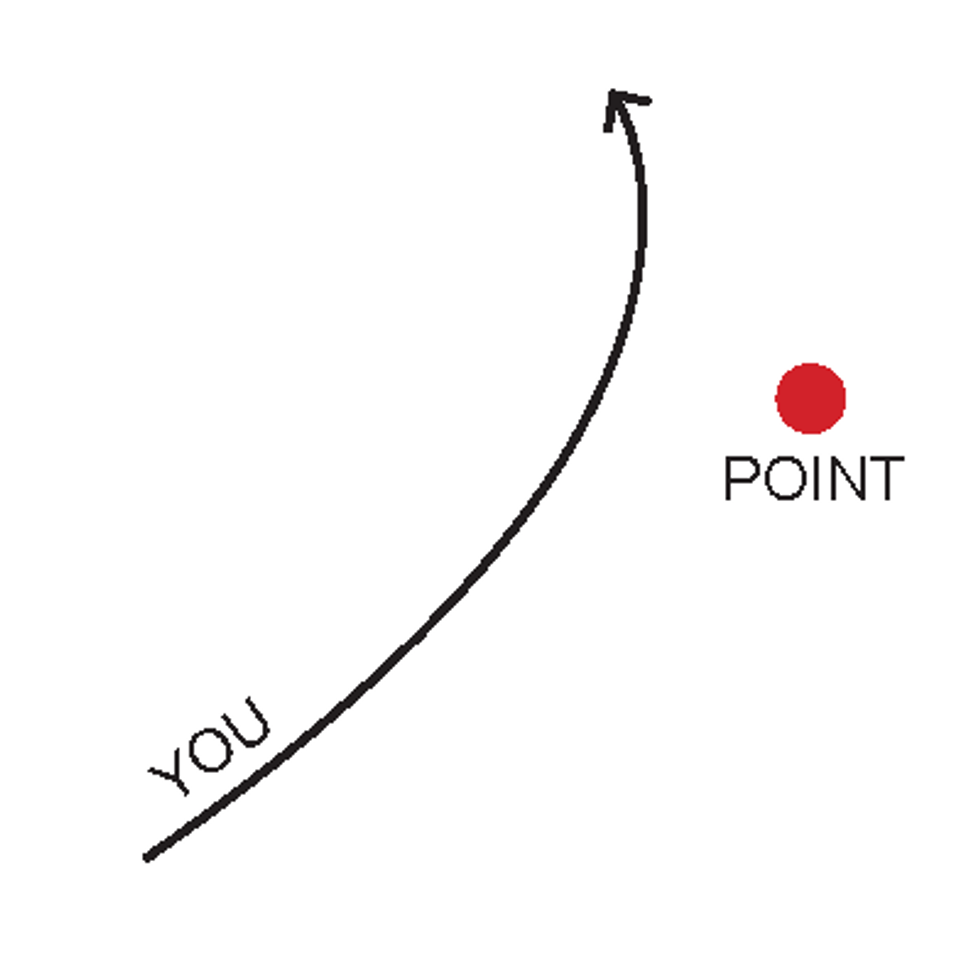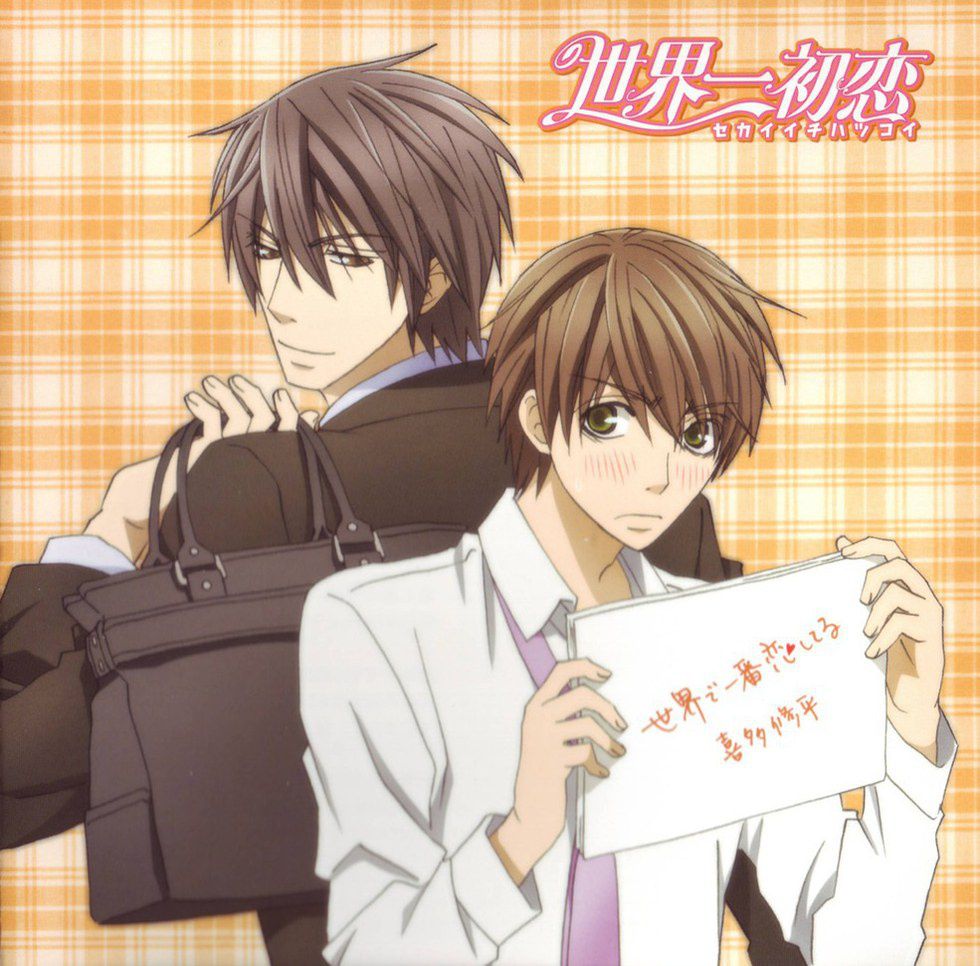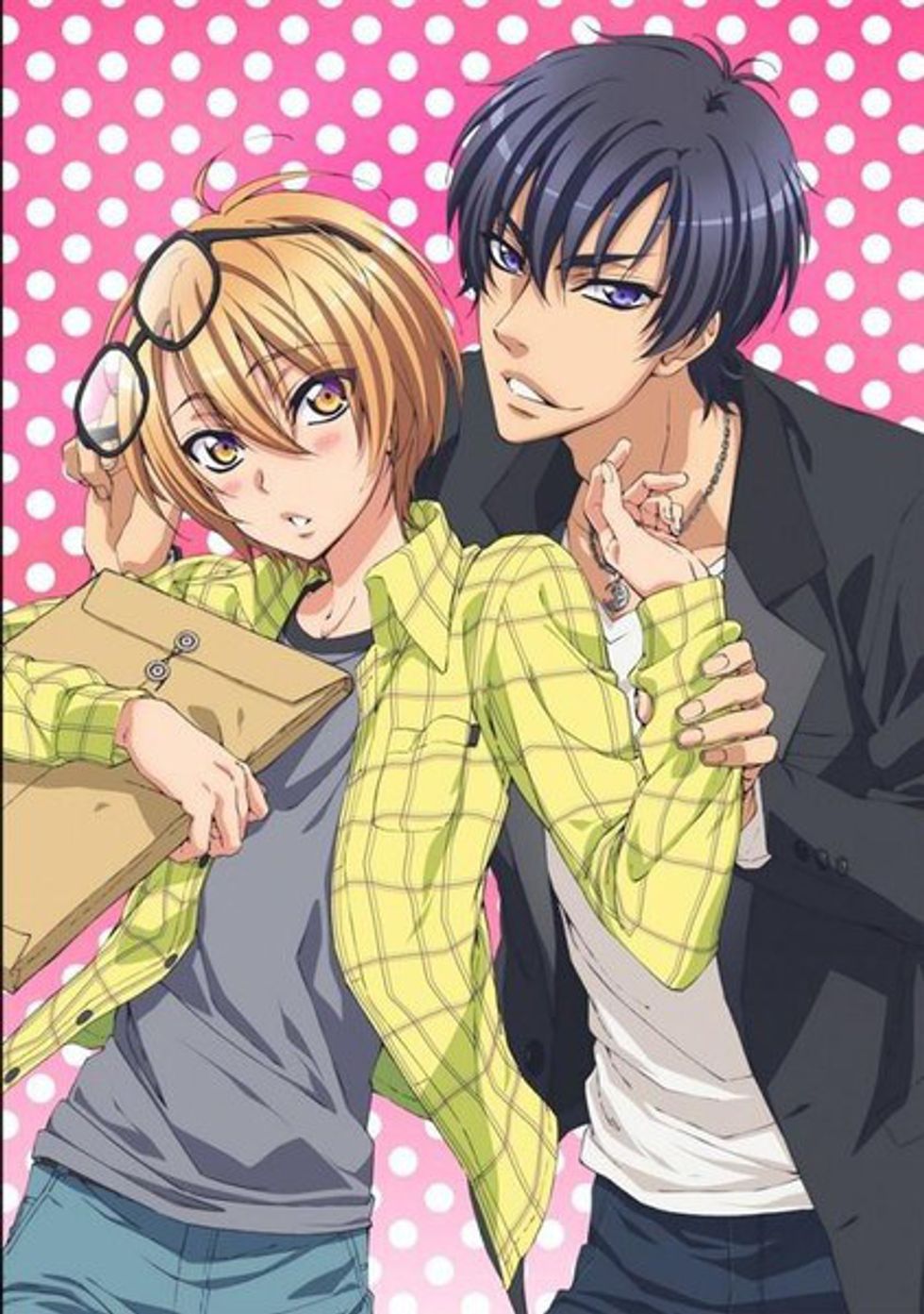As far as genres within anime are concerned, the predominate categories within this particular art format are typically that of shounen (essentially, the coming of age of a young man) and shojo (which literally translates to "girl"). Some of the most mainstream anime of all time have come from the former genre, such as "Dragon Ball Z," "One Piece," and "Bleach," and while shojo is slightly lacking in popularity, one of the most progressive anime of all time, "Ouran High School Host Club," hails from that genre and manages to continue to enthrall viewers, despite its ending in 2006. I would highly recommend the show to anyone with a pulse; it's absolutely phenomenal (and on Netflix!). However, the vast array of anime genres is far reaching, and one of the sections that deserves far more attention, as well as academic analysis, is that of yaoi.
Yaoi is the depiction of a romantic relationship between two men, but the sub-variants within this genre are remarkably wide, ranging from consenting adults to that of shota-con, which is the depiction of a homosexual relationship between a grown man and a child. If you've ever seen anime fans cringing about a show entitled "Boku No Pico," they're referring to a piece of shota-con, and while I've never seen it, the aspect of pedophilia alone should scare away any potential viewers. Unfortunately, it is this anime, as well as others along these same lines, that ruin the genre for fans that are less informed about the wonderful shows within the genre. For instance, Junjo Romantica, the first yaoi I viewed, is just as intense as it is hilarious and, at times, poignantly serious. There were moments during certain episodes that I had to tap the pause button and rethink the ways in which our societies are remarkably heteronormative, as well as the fact that the issues that are addressed within the show are obstacles that I will never encounter because our hierarchy has declared my sexuality as something "normal," despite the fact that this term itself is completely arbitrary.
Before delving into the specific shows from which everyone can benefit, there are important factors to address, primarily the sexual content and fan response, given that word of mouth is the strongest form of advertising when it comes to this genre. For those familiar with anime, sexual content is presented in interesting forms, particularly in ecchi anime like Shimoneta, wherein sexual scenes are teased but not shown in their full (side note: this is also a fantastic anime). Typically, the most sexualized body parts are enlarged to fit unrealistic expectations of the human body; I'm looking at you, "HIgh School of the Dead." However, the sexual themes and scenes within yaoi are actually pretty understated, all things considered, especially in the more mainstream shows like "Love Stage" and "Sekai Ichi Hatsukoi." This is predominantly due to the fact that the sexual encounters are not meant to be the focal points of the shows, where as anime within the ecchi category are specifically attempting to imitate a sense of strong sexuality, even if the show does not call for such content (again, "High School of the Dead"). This isn't to say that sexual content isn't present; however, the implications are far more explicit than any physical scene. It is far more likely to see clothes strewn across a couch than to actually see someone in the nude.
This intense focus on the sexual content within this genre is perpetuated through the fans of the shows. It has been suggested that yaoi is slowly beginning to be targeted towards female, much like yuri is directed towards men. Yuri is the (overtly sexual) depiction of two--typically quite young--females that enter into a relationship with one another. Pedophiles are a massive fan of these shows, which should indicate how skewed this advertising and content production has become as the years have progressed. When I was told about yaoi, it was always from the mouths of female friends, and after they described the shows, they would say things such as, "And the sex is super hot."
This isn't to say that finding one of the characters attractive is against the rules of fandom, but the exploitation of a homosexual genre for the purpose of personal gratification is disgusting. These shows are about so much more than sexual relations, and a great deal of them do not actually involve sexual intercourse until the very end.
There are two titles that I would highly recommend for anyone that wants to become more informed when it comes to this genre, the first of which is "Sekai Itchi Hatsukoi."
The synopsis on this show will be relatively short, given that revealing content about Onodera and Takano's relationship is actually a gigantic spoiler, but this show is on the serious end on the genre, dealing with men in their late twenties. Onodera (right) accepts a job with a publishing company wherein he is essentially forced to work in the shojo manga department with a gaggle of other unfortunate men. His supervisor, Takano (left), is a hard-ass, but he manages to bring the best out of the entire team. The show primarily follows this pair, but the collective story line contains three couples, the third of which is my personal favorite.
The second show that I'd promote in a heartbeat is "Love Stage."
Izumi (left) is one of the most relatable characters in anime. He's a massive otaku that despises being the center of attention (despite being the son of two celebrities), and his only desire is to pursue his art in peace. Before he possessed the ability to speak against his parents, he was forced to play a young girl in a wedding commercial alongside Ryouma (right), one of the child actors on set. Years later, the two meet again, and Ryouma is disappointed to find that the woman he's been in love with since childhood is actually a male. Cue slurs and general awful behavior.
I chose this anime specifically because it showcases character development on Ryouma's part. In the beginning, he's quite terrible, but throughout the course of the show, he realizes how awful he was and eventually comes to terms with the fact that he's in love with another man (and that that is totally fine!). In the end, he becomes the more passionate of the two, practically begging Izumi to give him a chance. This show kind of contains three couples, but information upon the secondary couples can only be found within the manga. Honestly, their appearance within the show is rushed and awkward.
When discussing this genre in the future, please consider that the misconceptions about yaoi are vastly incorrect. Additionally, actively speak against those that wish to promote the shows on grounds of sexual exploitation.










 mr and mrs potato head
StableDiffusion
mr and mrs potato head
StableDiffusion










